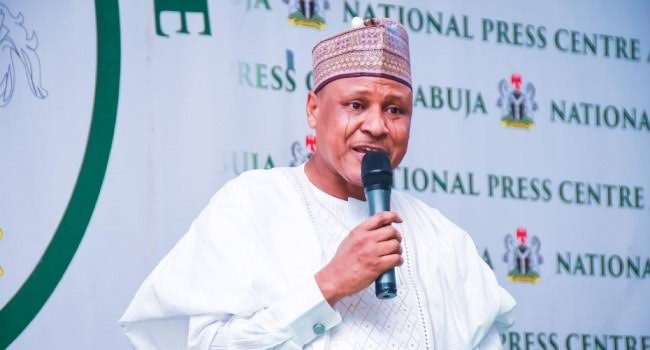The Federal Government has dismissed the idea of implementing price controls to address rising food costs, instead prioritizing large-scale agricultural production to stabilize prices.
Speaking in Abuja, the Minister of Information and National Orientation, Mohammed Idris, explained that the government’s strategy is centred on boosting food supply, which he believes will naturally lead to price adjustments.
“The government’s approach is to increase food production. Once supply rises, prices will stabilize,” Idris stated.
He highlighted ongoing agricultural projects in Kebbi, Jigawa, and Benue states, emphasizing that investments in both rain-fed and dry-season farming would help achieve food self-sufficiency and reduce dependence on imports.
Government reforms and key policy updates
Beyond food security, Idris outlined some of the administration’s major economic, fiscal, and legislative reforms.
He cited the 2024 Electricity Act, signed by President Bola Tinubu, which enables state governments to establish and regulate their own electricity markets, marking a step toward decentralizing the power sector.
On education, he revealed that the National Education Loan Fund (NELFUND) has disbursed ₦32.8 billion to over 169,000 students, ensuring wider access to affordable higher education.
FG to hold regular ministerial press briefings
To improve public engagement and transparency, Idris announced that the Federal Government would conduct regular ministerial press briefings, allowing ministers to update the public on policies and national issues.
The first in the series of briefings is set to begin next week, ahead of President Bola Tinubu’s second anniversary in office, themed “Year of Consolidation of President Tinubu’s Reforms.”


